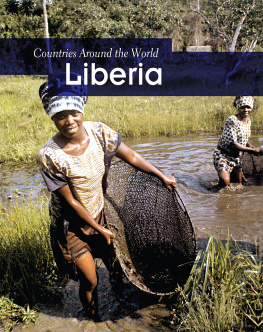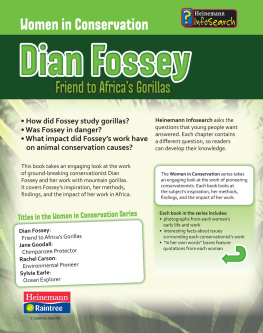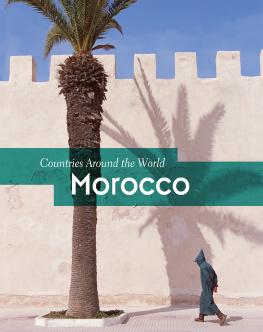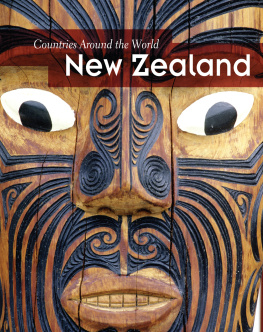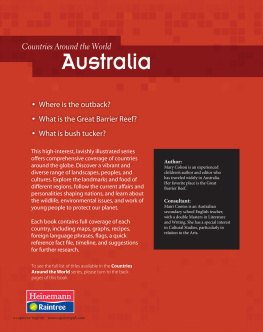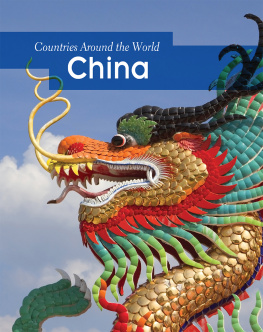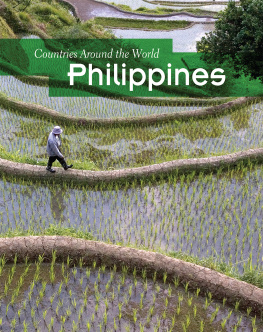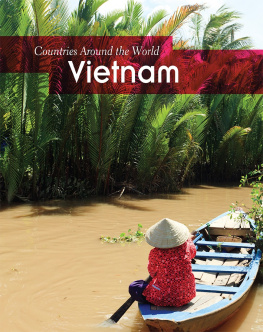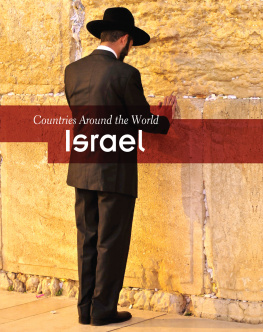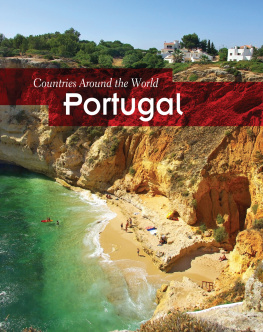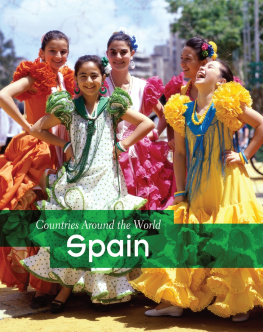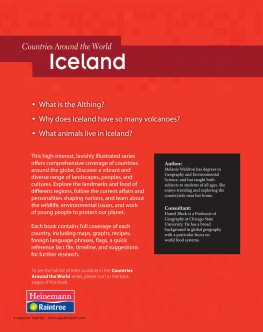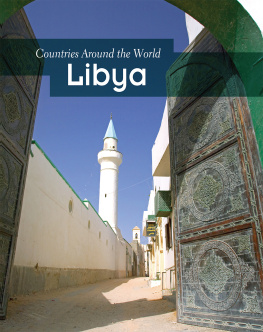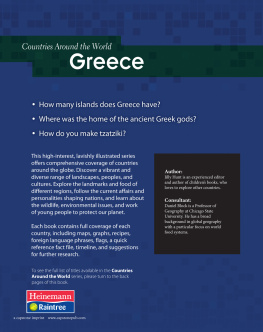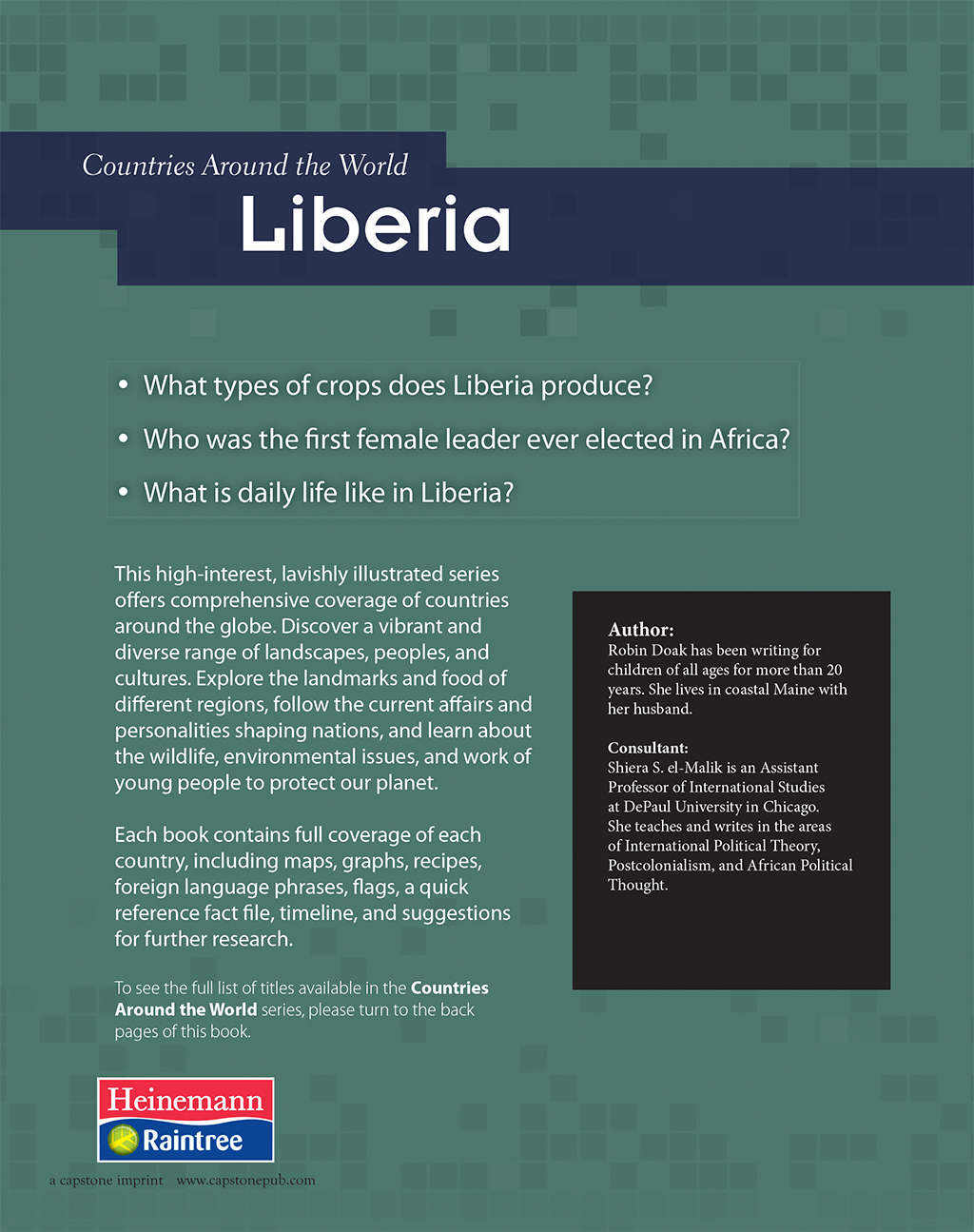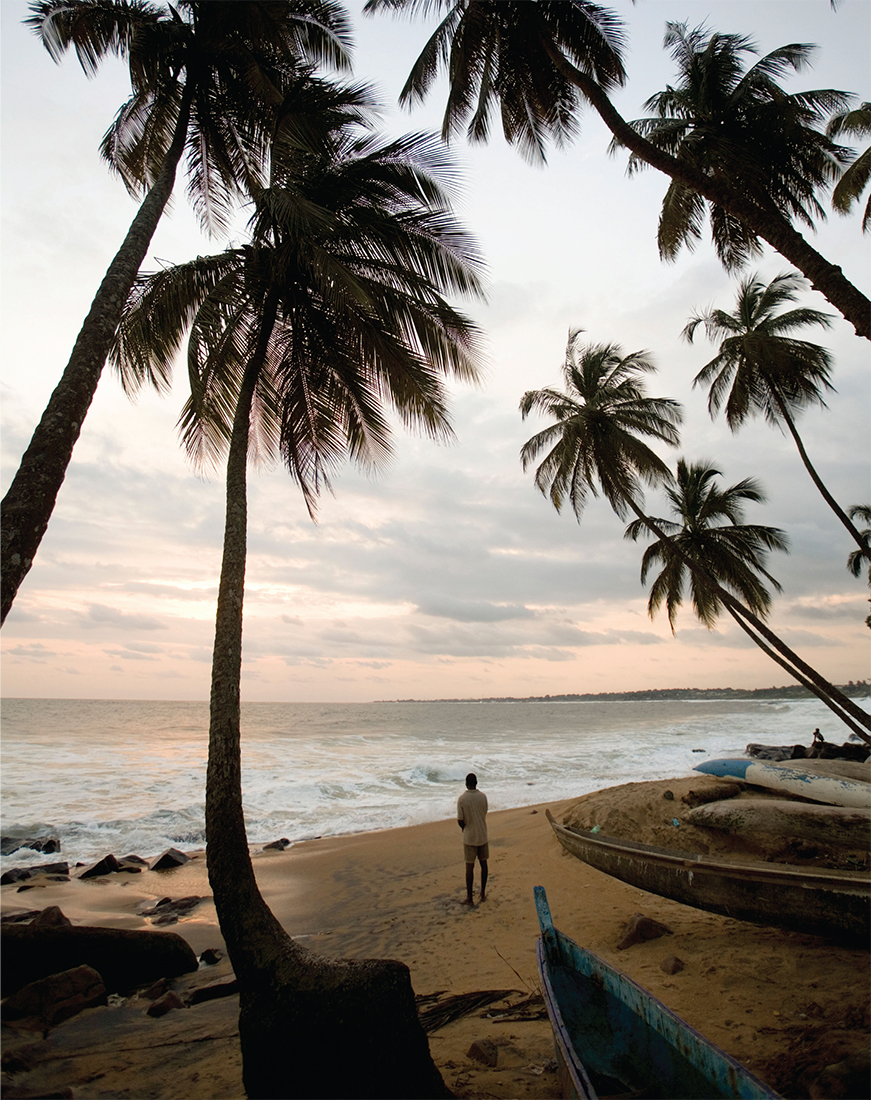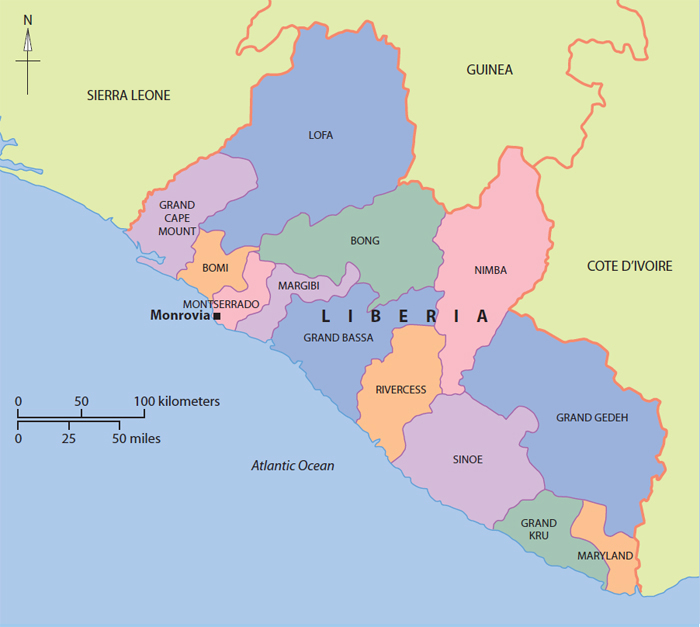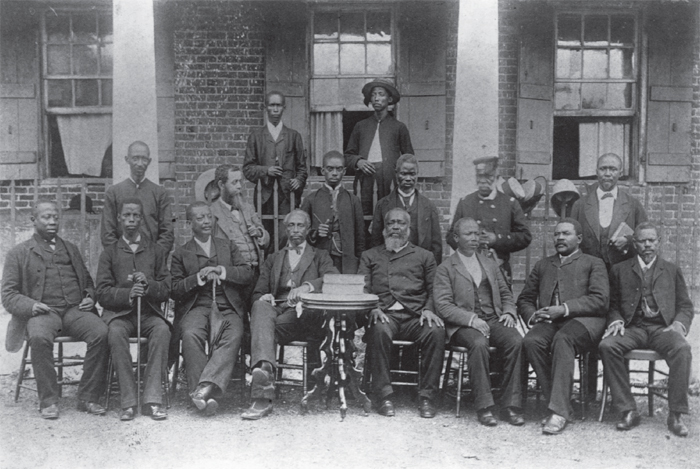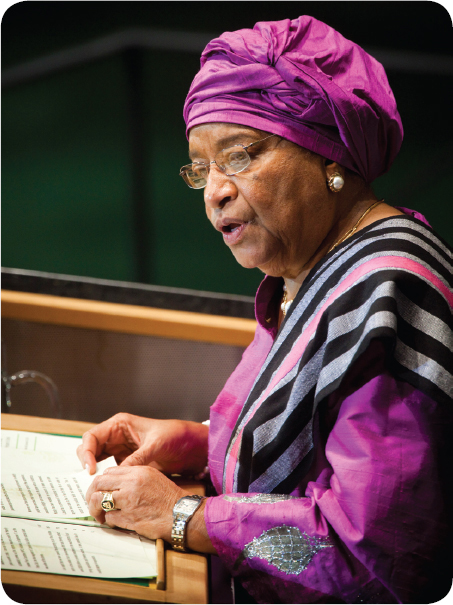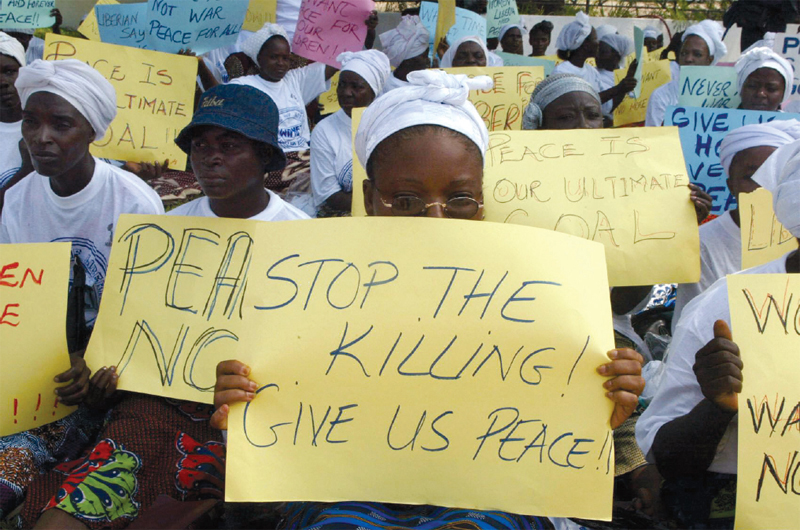Liberia is bordered by the nations of Sierra Leone, Guinea, and Cote dIvoire. Thecountrys western boundary is the Atlantic Ocean.
Members of the Liberian Senate of 1893, shown here, were mostly freed African Americanslaves.
A refuge for freed slaves
In 1822 freed slaves from the United States began arriving in Liberia with the helpof the American Colonization Society. This organization, made up of both abolitionists and slave owners, raised money to send free blacks to Africa. The group also negotiated with tribal leaders in the area to buy the land.
Society members named the new colony Liberia, for liberty and freedom. The firsttown was called Monrovia to honor U.S. President James Monroe. Monroe supported thesocietys work.
Africas first republic
Over the next 25 years, freed blacks continued to leave the United States for Liberia.These people became known as Americo-Liberians . In 1847 they declared their independenceand formed their own government, a republic . Liberia was Africas first republic.
Growing problems
From the time they arrived, the Americo-Liberians made up just a very small portionof Liberias population. But this tiny group of people controlled the nations powerand wealth. From 1847 to 1980, they were in charge of Liberias government. Thiscaused anger and resentment within the native tribes in Liberia.
The new arrivals tried to convert the tribes in Liberia to Christianity. Tribes didnot want to give up their religions, and this caused even more problems. Violentbattles occurred occasionally between the native people and the Americo-Liberians.
Civil war
In 1989 the problems that had been simmering for more than 100 years erupted intoa bloody civil war . Over the next seven years, several different groups warred againstone another in hopes of controlling the government. The war ended in 1996, and electionsfor president were held the next year. In all, one out of every 17 Liberians diedduring the conflict.
YOUNG PEOPLE
During Liberias first civil war, thousands of boys and girls were kidnapped fromtheir families. Kids as young as eight years old were given guns. They were forcedto fight and kill others. After the war ended, groups like the United Nations ChildrensFund (UNICEF) worked to help young soldiers fit back into normal life. They helpedmany find their families and return to school or get jobs. Today, efforts continueto help these former fighters give up violence and live peacefully.
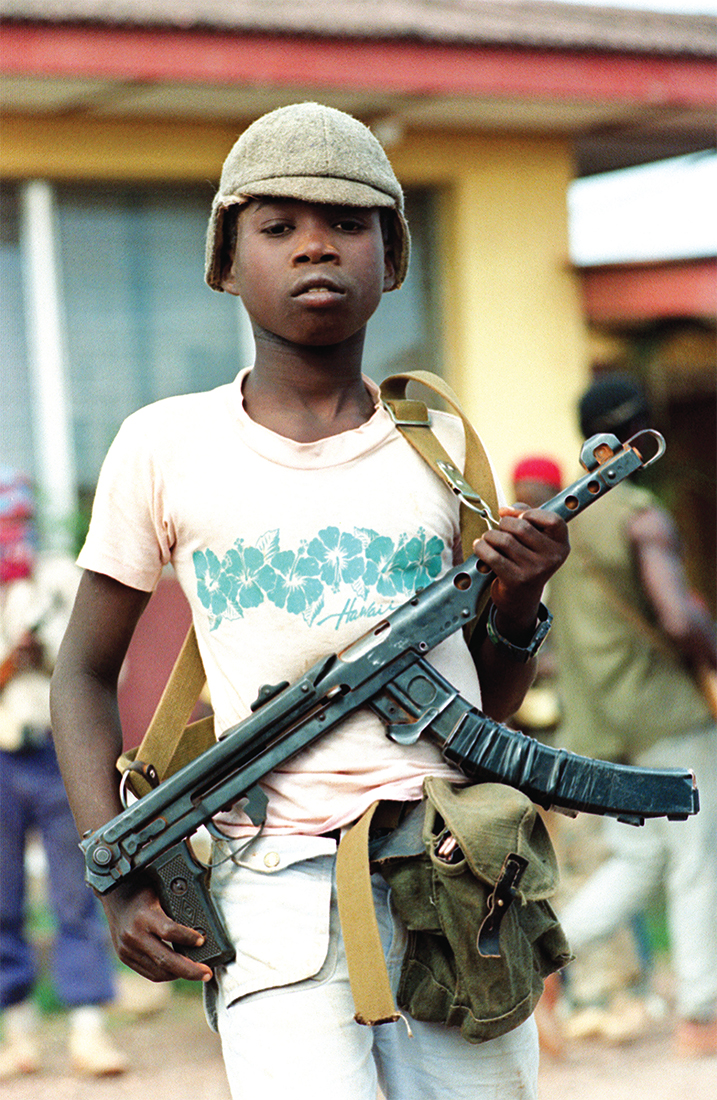
Fighting during Liberias first civil war caused the deaths of up to 250,000 peopleand forced a million more to flee to refugee camps in nearby countries.
A second civil war
In 1999, a second civil war began in Liberia. Rebel forces in the northern part ofthe country began killing people and destroying homes and property. The rebels wantedto overthrow Liberian president Charles Taylor. By 2002 about 230,000 Liberians hadfled to other countries to escape the violence.
ELLEN JOHNSON SIRLEAF (B.1938)
In 2005, Liberians elected Ellen Johnson Sirleaf as their president. Sirleaf wasthe first female ever elected to serve as leader of an African country. Born in Monroviain 1938, Sirleaf is an expert in economics and banking. In 1985 she was sentencedto 10 years in prison for speaking out against Liberias corrupt president, SamuelDoe. During her first term as president, Sirleaf worked to help her nation recoverfrom its two devastating civil wars. She has the support of many leaders around theworld. Sirleaf was reelected in 2010.
Liberian women protest violence outside peace talks in Ghana.
Women for peace
In 2003 thousands of women banded together and formed the Women of Liberia Mass Actionfor Peace. Their goal was to end the violence throughout their country. In June manyof the women traveled to Ghana to stand watch at peace talks there. They held nonviolentprotests and forced rival Liberian leaders to negotiate a peace treaty .
In August all sides agreed to end the war. They also agreed to hold elections forthe next president. The United Nations (UN) sent in peacekeeping troops to make surethe treaty was followed. The UN also offered rebels money and job training if theyturned in their weapons.
Regions and Resources: The Land of Liberia

